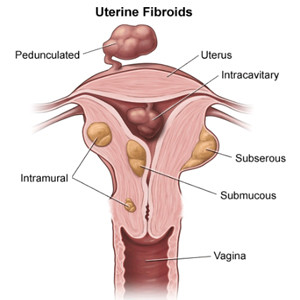
Source: swansonhealthcentre.com
It’s that time of the month, and…. oh wait, ‘that’ time of the month is still ongoing. Sheesh.
So picture this. You meticulously planned for a trip to the beach. Paid in advance the fees for activities you anticipate on blissfully participating: kayaking, banana boat rides, parasailing. Throw in some time frolicking on the beach. You timed your beach holiday perfectly so that your monthly lady friend wouldn’t get in the way. But alas, ‘she’ has decided that ‘she’ deserves to stay and accompany you on your joy trip, dashing all hopes of you enjoying the activities you have planned.
Sounds familiar? Well, most of the time, it’s not just the special occasions that are affected. When your period comes and overstays its welcome, even normal activities become an inconvenience.
Most women experience normal menstrual cycles most of the time; having menses at the same approximate monthly intervals, with regular, predictable number of days and a fairly acceptable amount of blood. However, some women are not so lucky, in the sense that they will either have prolonged periods or none at all. This article will focus on the former.
Menorrhagia (pronounced as may-nor-ray-gee-ya) is basically a medical term that is used to summarize a condition suffered by women in which she suffers from prolonged and heavy menstrual periods; so much so that daily activities are restricted. It is usually associated with a bleeding period of more than seven days. However, symptoms may differ from person to person, and this includes the following:
- Soaked sanitary pads or tampons, to the point of leakage
- Having to frequently change sanitary pads or using more than the usual amount of pads
- Heavy menstrual flow of more than seven days
- Passing blood clots the size of the old fifty-cent coins along with menstrual flow
- Limited daily life activities due to heavy menstrual flow
There are many causes of menorrhagia. To simplify, they are grouped as follows:
- Problems of the uterus
- Problems related to hormones
- Other illnesses or disorders

Source: www.ladycarehealth.com
Problems of the uterus are the most common cause of menorrhagia. A common contributor is uterine fibroid, which is basically an abnormal growth of the uterus that is not cancerous. It usually appears during a woman’s childbearing years. Polyps are another problem related to the uterus. It is also an abnormal growth, but is limited to the linings of the uterus and is also non-cancerous. It may appear during the reproductive age of a woman’s life and can cause heavy and/or prolonged menstrual bleeding. Adenomyosis, also a condition of the uterus, is a condition whereby the glands of the lining gets stuck in the muscle layer of the uterus, causing heavy bleeding and associated with cramping or abdominal pain.
Hormonal problems are also quite common contributors of menorrhagia. An imbalance of our womanly hormones can lead to menorrhagia when one hormone level is higher than the other, causing the lining of our uterus to be thicker than normal and has to be shed off in the form of heavy menstrual bleeding. Another condition in this category is when the ovaries (the egg factory) become dysfunctional, causing no ovulation to happen in the menstrual cycle. The hormone progesterone is not produced, tipping the balance and consequently causing menorrhagia.
Besides conditions directly related to the uterus and hormones, many other disorders also contribute to menorrhagia. The use of an intra-uterine device (well, ahem, excuse me, this does involve the uterus) for family planning purposes may, in a small percentage of women, cause abnormal menstrual bleeding; some to the extent of needing removal of the device and resorting to other methods of contraception. Use of certain medications, such as anticoagulants (blood thinners), may also compromise the menstrual cycle. Others may have inherited blood coagulation (clotting) disorders, for example, von Willebrand’s disease, a condition in which important factors for blood clotting is deficient. This will ultimately lead to menorrhagia.
So why is it important to know all this? Well, it is something very much preventable, as well as treatable. Being able to identify it early means being able to prevent it from causing all sorts of troublesome complications, notably iron deficiency anemia. Although this type of anemia is nutrient-related, having menorrhagia can worsen the symptoms. This condition causes low oxygen carrying capacity of the blood. In other words, our blood is unable to supply enough oxygen to our body. A mild condition can cause the sufferer to feel tired easily or lethargic. But a more serious condition can see someone getting dizzy, having headaches and even experiencing chest pain and shortness of breath. Thus, being busy as it is, women should not complicate their lives further by prolonging the inevitable.
A trip to see the doctor will sort out the cause of menorrhagia, should you experience it. Your doctor will ask questions to ascertain your condition, focusing really hard on the details of your menstrual cycle. He or she will then do a thorough physical examination and will carry out certain tests, which may include blood tests, an ultrasound scan to view your reproductive organs, Pap smear test (if applicable) to rule out conditions related to the cervix and tissue biopsy to see if there are any abnormalities of the tissues of your uterus. Depending on the diagnosis, your doctor will offer appropriate treatment.
The bottom line is that menorrhagia is a condition that should not be left to chance. Proper investigation is needed in order to find out the cause, which will then lead to an appropriate line of management. So ladies, do yourselves a favour. If you find yourselves in these waters, quickly seek proper medical attention.
Dr. Ayu Akida is a Public Health specialist. Her area of interest is family health, especially women’s health and infectious diseases. Find out more about her at The Team (Columnist) page.
[This article belongs to The Malaysian Medical Gazette. Any republication (online or offline) without written permission from The Malaysian Medical Gazette is prohibited.]
Reference
- Fox, KE 2012, ‘Management of heavy menstrual bleeding in general practice’, Current Medical Research And Opinion, 28, 9, pp. 1517-1525, MEDLINE, viewed 5 November 2013
